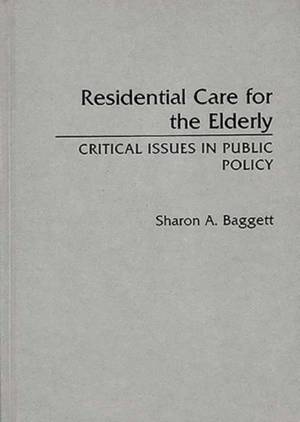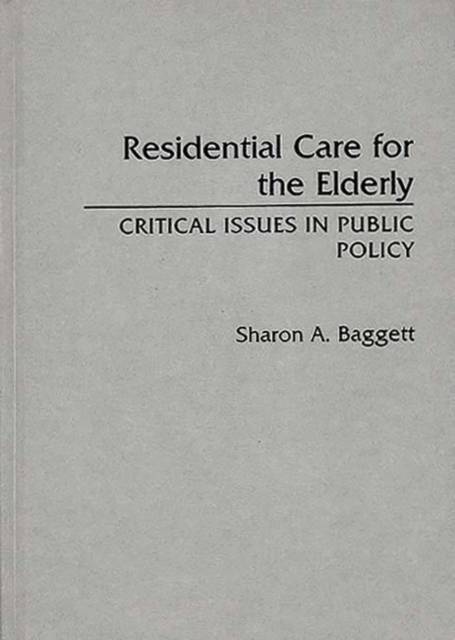
- Afhalen na 1 uur in een winkel met voorraad
- Gratis thuislevering in België vanaf € 30
- Ruim aanbod met 7 miljoen producten
- Afhalen na 1 uur in een winkel met voorraad
- Gratis thuislevering in België vanaf € 30
- Ruim aanbod met 7 miljoen producten
Zoeken
€ 127,45
+ 254 punten
Omschrijving
Although residential care and assisted living for older adults has expanded rapidly in recent decades, it has done so in a policy environment beset by confusion and conflicting purposes. Sharon A. Baggett traces many of the current problems to insufficient knowledge of the population these policies are designed to serve. In her examination of the frequently neglected interface between policy and people, she provides a comprehensive review of current federal and state policies, a detailed case study of a state residential care program, and an analysis of the needs and characteristics of persons in assisted living facilities.
Baggett's policy overview covers such areas as the confusion between housing and care, supply and demand factors in the economics of residential care, conditions contributing to the increase in numbers of assisted living facilities, and current policies that define and limit the choice of residential alternatives. A case study of Oregon's residential care program shows how that state has adapted federal initiatives to local goals and philosophies of long-term care. Funding mechanisms, regulations, and the role of state agencies in developing and monitoring compliance are discussed. Following a comprehensive profile of facility residents, the question of using functional assessment measures to determine individual needs is explored. Linking the larger policy issues with an in-depth analysis of residents served and actual services provided, this book will be helpful to policy planners and developers, administrators, and case managers, as well as students and academics concerned with housing and assisted living services for the elderly.Specificaties
Betrokkenen
- Auteur(s):
- Uitgeverij:
Inhoud
- Aantal bladzijden:
- 185
- Taal:
- Engels
- Reeks:
Eigenschappen
- Productcode (EAN):
- 9780313267598
- Verschijningsdatum:
- 25/09/1989
- Uitvoering:
- Hardcover
- Formaat:
- Genaaid
- Afmetingen:
- 158 mm x 230 mm
- Gewicht:
- 462 g

Alleen bij Standaard Boekhandel
+ 254 punten op je klantenkaart van Standaard Boekhandel
Beoordelingen
We publiceren alleen reviews die voldoen aan de voorwaarden voor reviews. Bekijk onze voorwaarden voor reviews.











